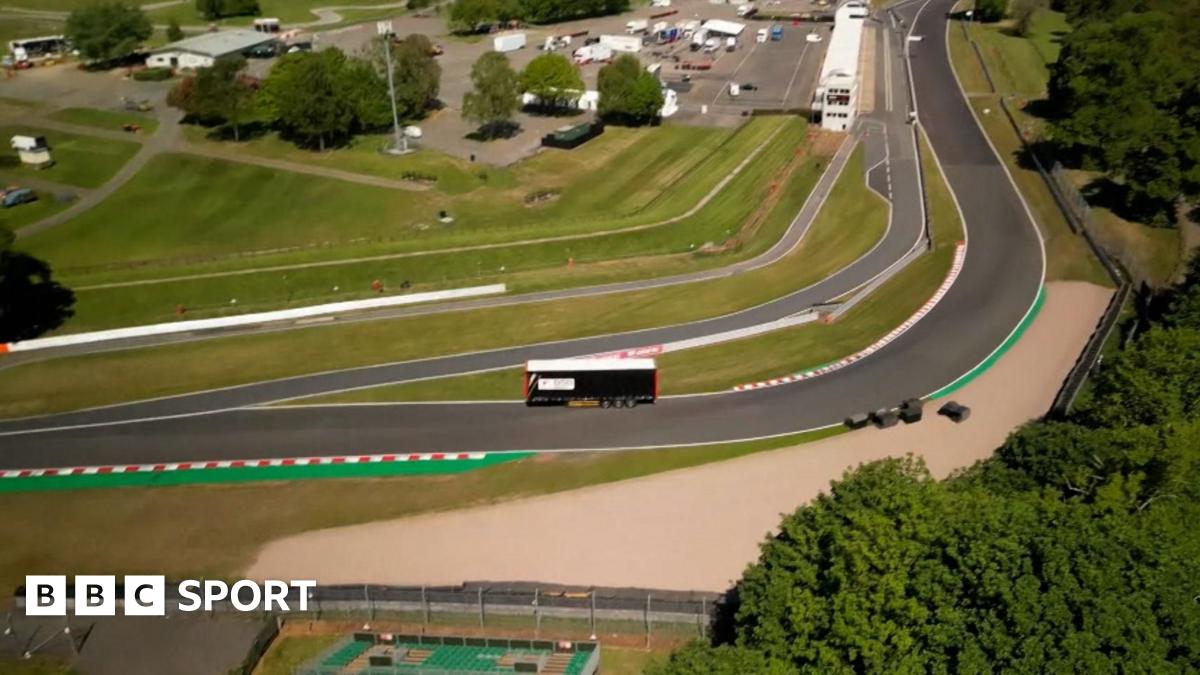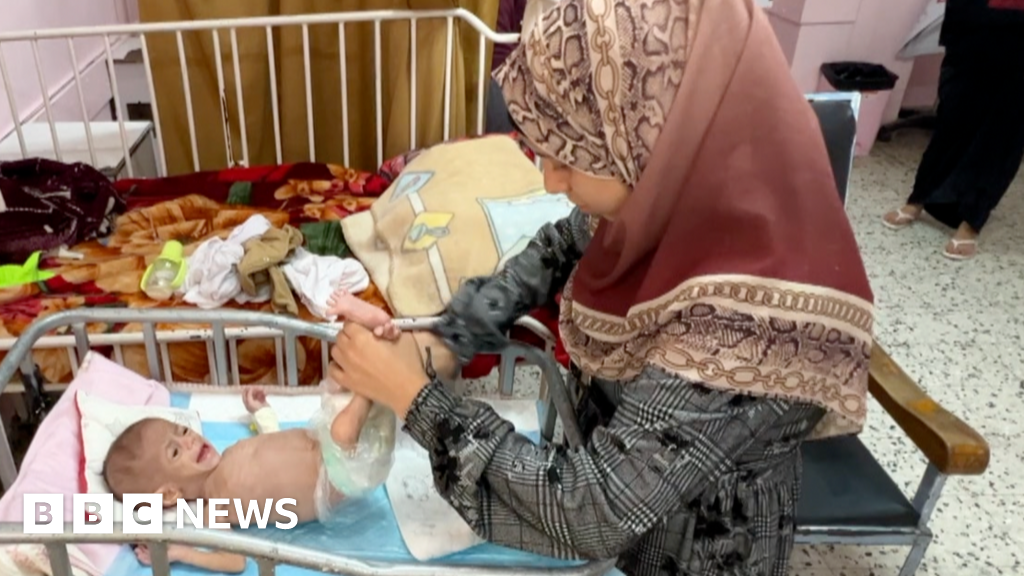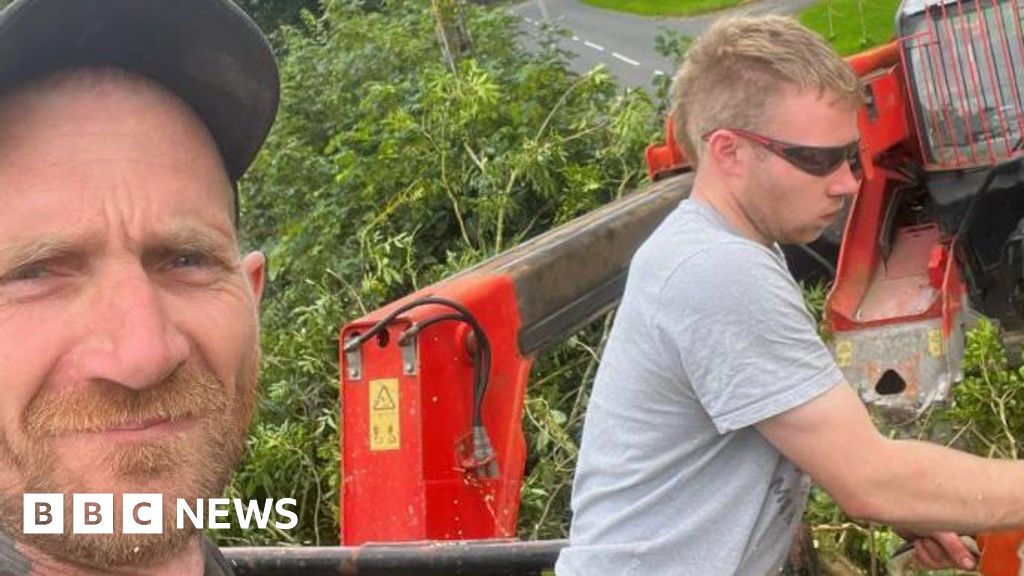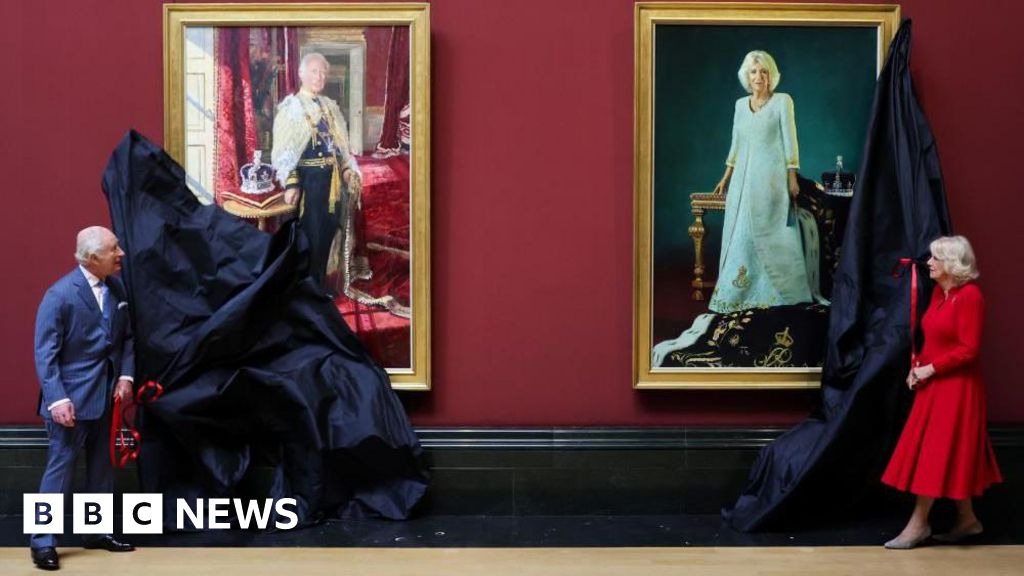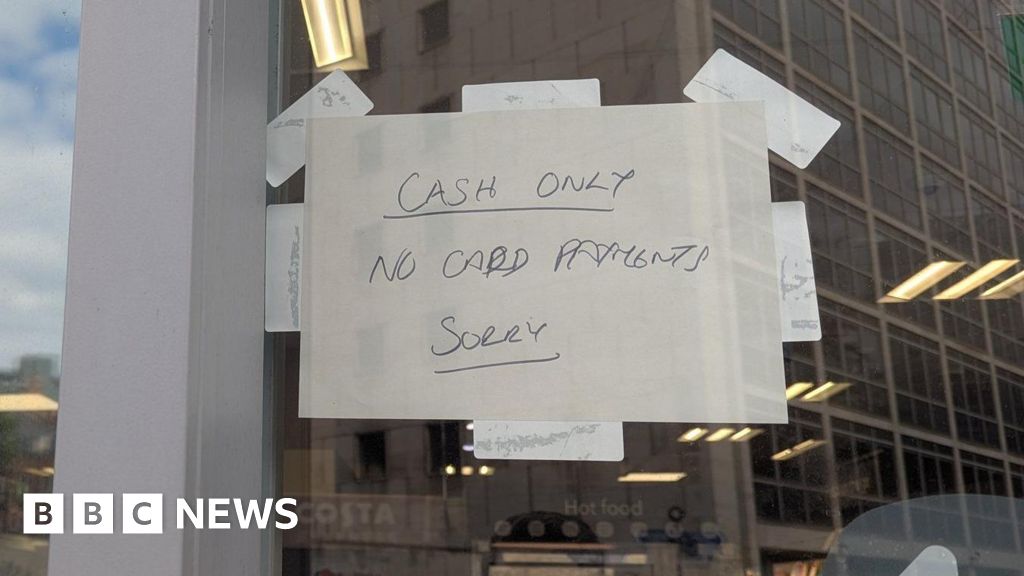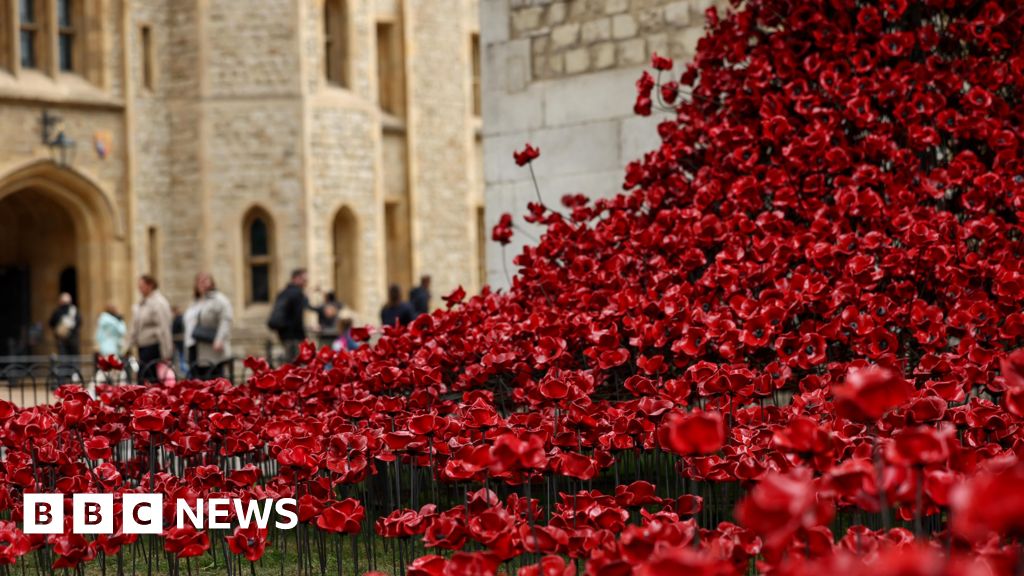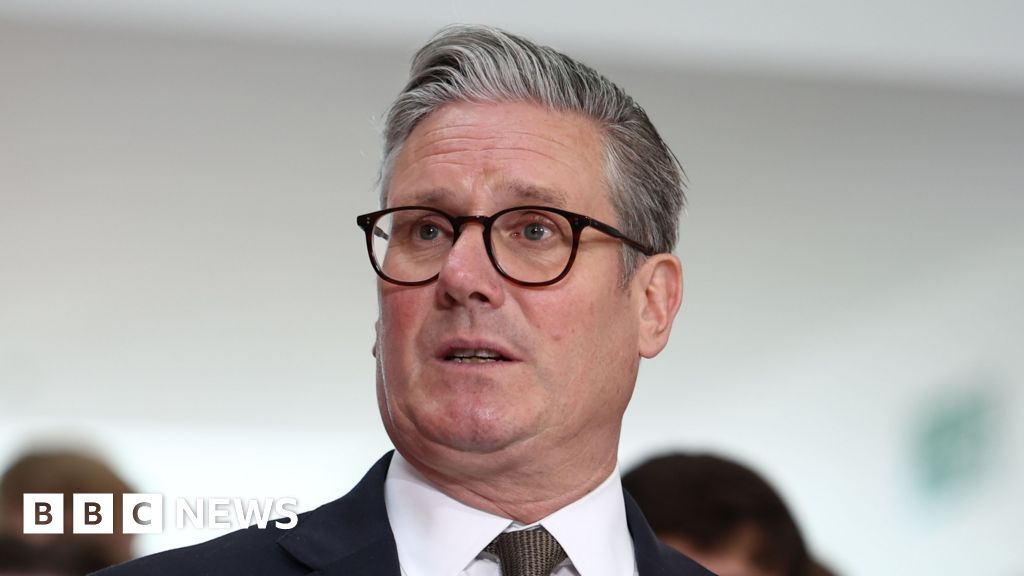Angus Cochrane
BBC Scotland News

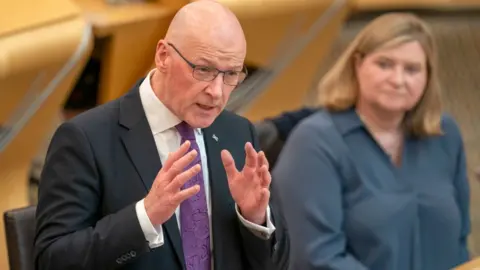 PA Media
PA Media
John Swinney moved the announcement forward ahead of next year's Scottish Parliament elections
NHS Scotland will deliver an extra 100,000 appointments in GP surgeries in a bid to end the 08:00 "lottery", First Minister John Swinney has pledged.
The SNP leader made the announcement as he unveiled his administration's programme for government 12 months ahead of the Holyrood election in May 2026.
As well as putting the NHS "at the heart" of the legislative and policy agenda, Swinney announced his government would permanently ban peak rail fares and end an alcohol ban on ScotRail trains.
The Conservatives said the statement was "more of the same" while Labour accused SNP ministers of wasting public funds after 18 years in power.
The programme for government sets out the policy and legislative goals for the next parliamentary year.
It is usually published after the summer recess, but Swinney moved the date this year to "enable a full year to delivery" before the Holyrood election.
He told MSPs at Holyrood that his plans amounted to a "programme for a better Scotland".
Swinney acknowledged the difficulty many face in getting GP appointments can cause "deep frustration" in what he said was "described as the 8am lottery".
He said the NHS would deliver an extra 100,000 appointments in GP surgeries focused on "key risk factors such as high blood pressure, high cholesterol, obesity and smoking".
It is understood GPs will be given extra funding to allow them to bring in people with conditions such as high blood pressure or cholesterol problems for check-ups before they are feeling unwell enough to ask to see a doctor.
It is hoped this will help ease the demand for on-the-day appointments.
The announcement, coming just nine months after the last programme for government, was light on proposed legislation.
Swinney instead spent time emphasising his government's previous record.
Among the concrete measures was a commitment to scrap peak rail fares on nationalised ScotRail trains.
A previous pilot scheme was axed by the government last year, with ministers citing low passenger numbers.
Swinney said the move would "put more money in people's pockets and mean less CO2 is pumped into our skies".
Ministers also say they will end an alcohol ban on ScotRail trains, which has been in place since 2020.
It is to be replaced by "regulations that focus restrictions more effectively on particular times and locations, similar to previous restrictions".

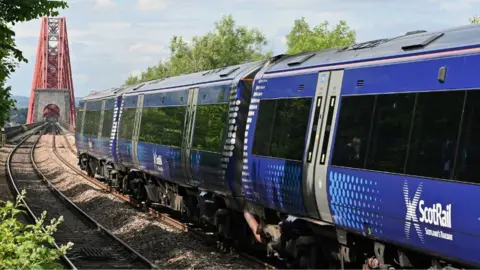 Getty Images
Getty Images
The Scottish government says it will end an alcohol ban on ScotRail trains
Ahead of the announcement, Swinney faced questions on anti-social behaviour associated with a scheme giving everyone under the age of 22 a free bus pass.
The government confirmed it was working on a scheme to suspend, or potentially permanently remove, passes from those engaging in anti-social behaviour.
Swinney told MSPs child poverty and tackling cost-of-living pressures were also among his priorities.
It came after figures released in March showed the Scottish government had missed its legal targets for reducing child poverty.
The Scottish government announced in December that it would effectively offset the two-child benefit cap north of the border by April 2026, or earlier if possible.
The cap, introduced by the UK government in 2017, prevents parents from claiming universal credit or child tax credit for more than two children, with a few exemptions.
Swinney said his government was "on track" to deliver payments to affected families by next year.
He said the government would publish a child poverty action plan for 2026 to 2031 "to keep us on the journey to meet our poverty reduction targets for 2030".

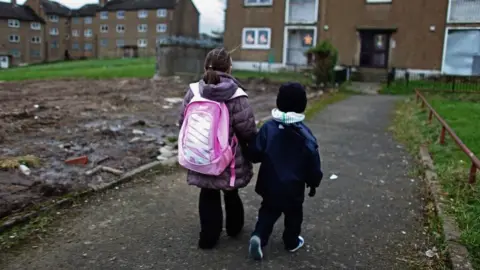 Getty Images
Getty Images
John Swinney says eradicating child poverty is among his priorities
To help stimulate the economy, the first minster announced a six-point export plan "to enable Scottish exporters to diversify and grow markets".
He also said ministers would set up funds for research projects and start-ups.
The SNP leader said the Scottish government would increase funding to the Acorn carbon capture project beyond a previous £80m cap - if given the go-ahead by the UK government.
The programme for government includes a commitment not to introduce new income tax bands, or increase current rates, before the next election.
It also says ministers will bring forward a bill to regulate non-surgical procedures which are offered for "cosmetic or lifestyle purposes".
Last week the Scottish government said it would not bring forward planned legislation to criminalise misogyny before next year's election - sparking criticism from the Scottish Greens.
Ministers said there was not enough time to draw up a law which reflected the recent Supreme Court judgement on the definition of a woman, and instead planned to amend existing hate crime legislation to provide protections on the basis of sex.
The government also confirmed it would not be bringing forward legislation to end conversion therapy this term.
During his announcement, Swinney said the government was "entirely committed" to tackling misogyny.
He also said his ministers would work with the UK government to deliver a conversion therapy ban across Scotland, England and Wales.
'More of the same'
Scottish Conservative leader Russell Findlay described the programme for government as "flimsy" and "more of the same".
He told MSPs that it "would do little to restore public trust".
Labour leader Anas Sarwar said billions of pounds of public money had been "wasted by the SNP" during its time in power, calling the announcement "embarrassing".
He added: "This statement fails to meet the challenges or ambitions of the people of Scotland."
John Dickie, director of the Child Poverty Action Group in Scotland, said the government's plan "lacks the scale and urgency needed to meet statutory targets never mind achieve the FM's ambition to eradicate child poverty altogether".
The Poverty Alliance said the policy agenda "doesn't go far enough", while the STUC described it as "bold on rhetoric but light on details and on cash".
Stop Climate Chaos Scotland said the programme for government offered "too little, too slowly".
However, the Scottish Chamber of Commerce said it was a step "in the right direction".

 5 hours ago
8
5 hours ago
8






